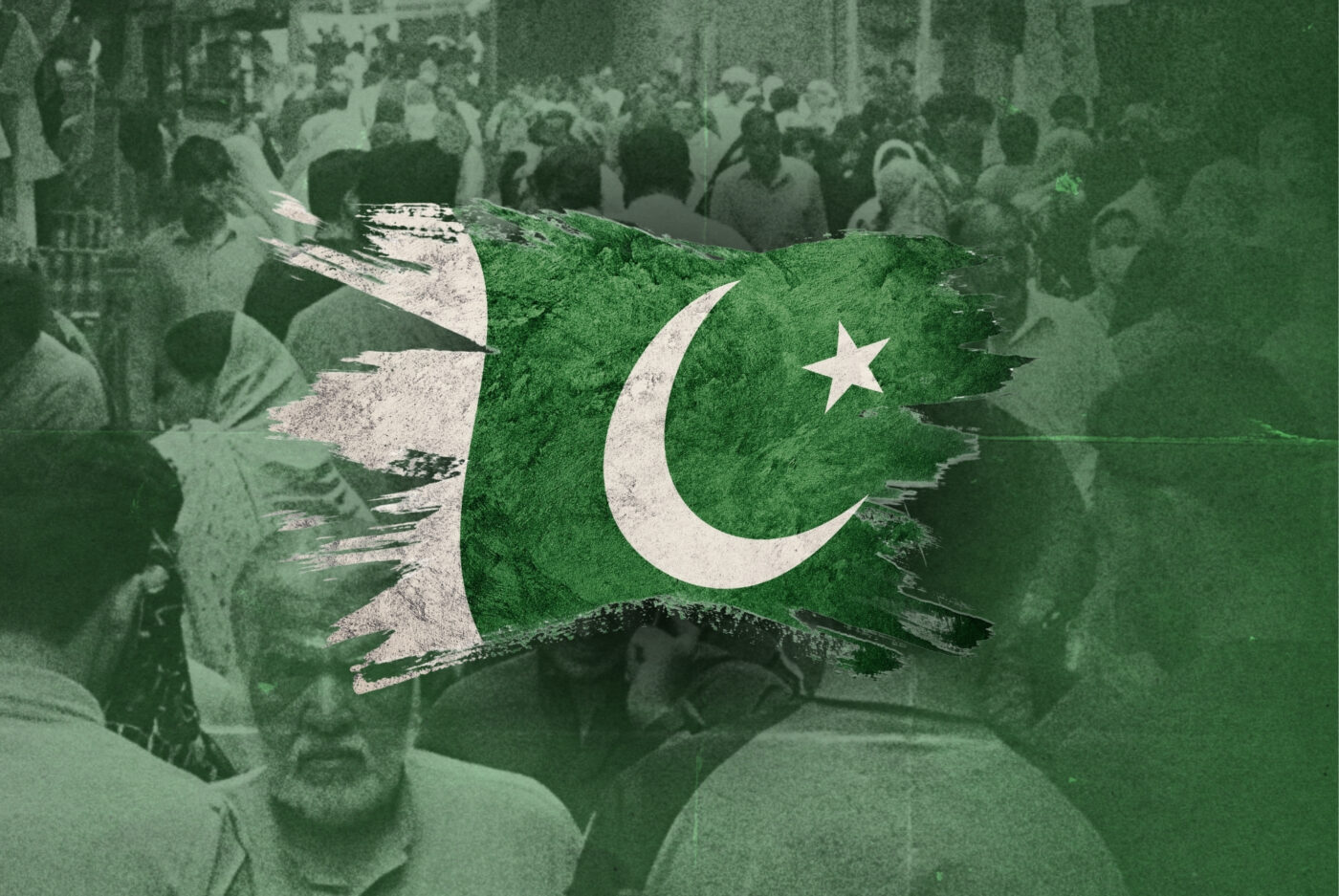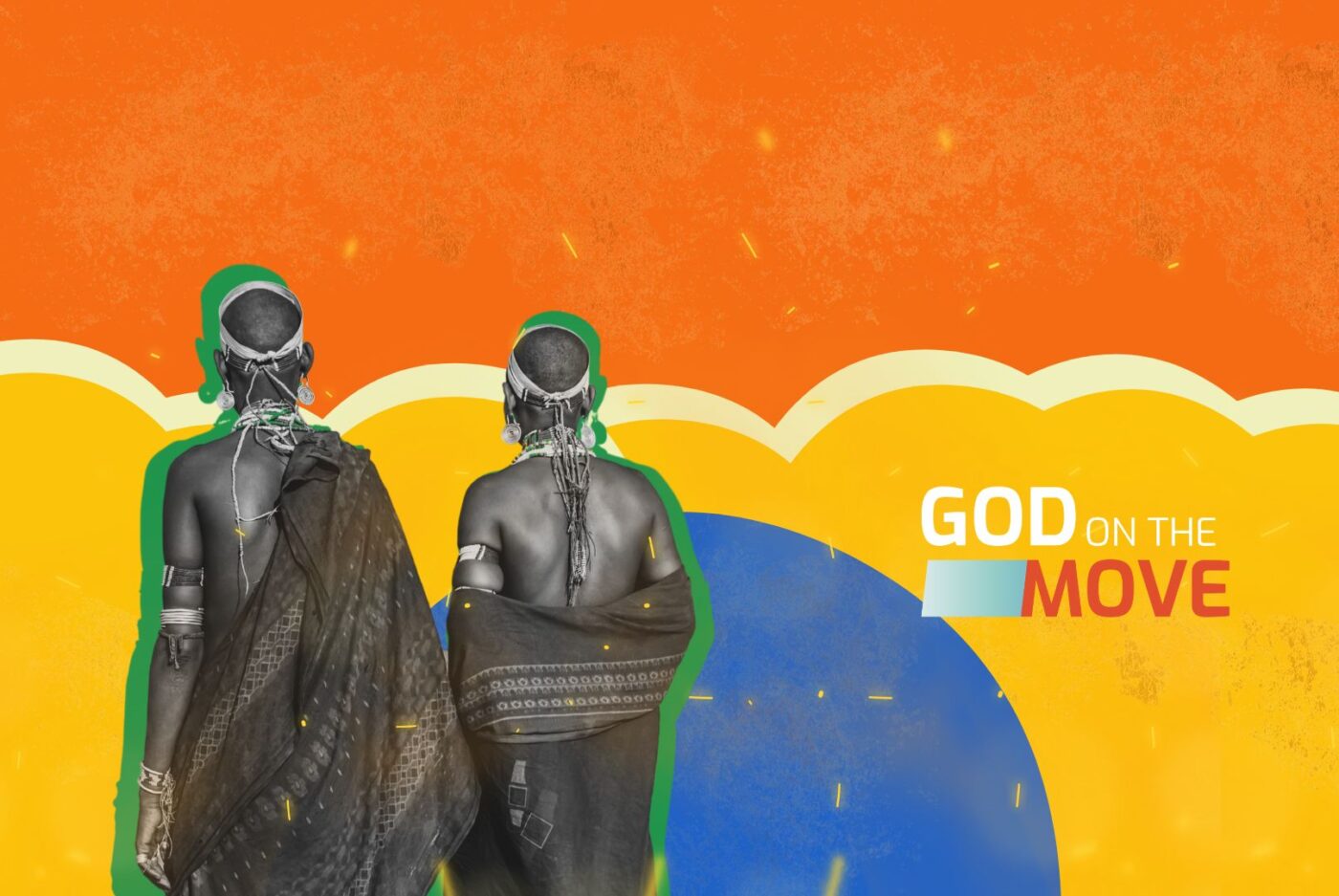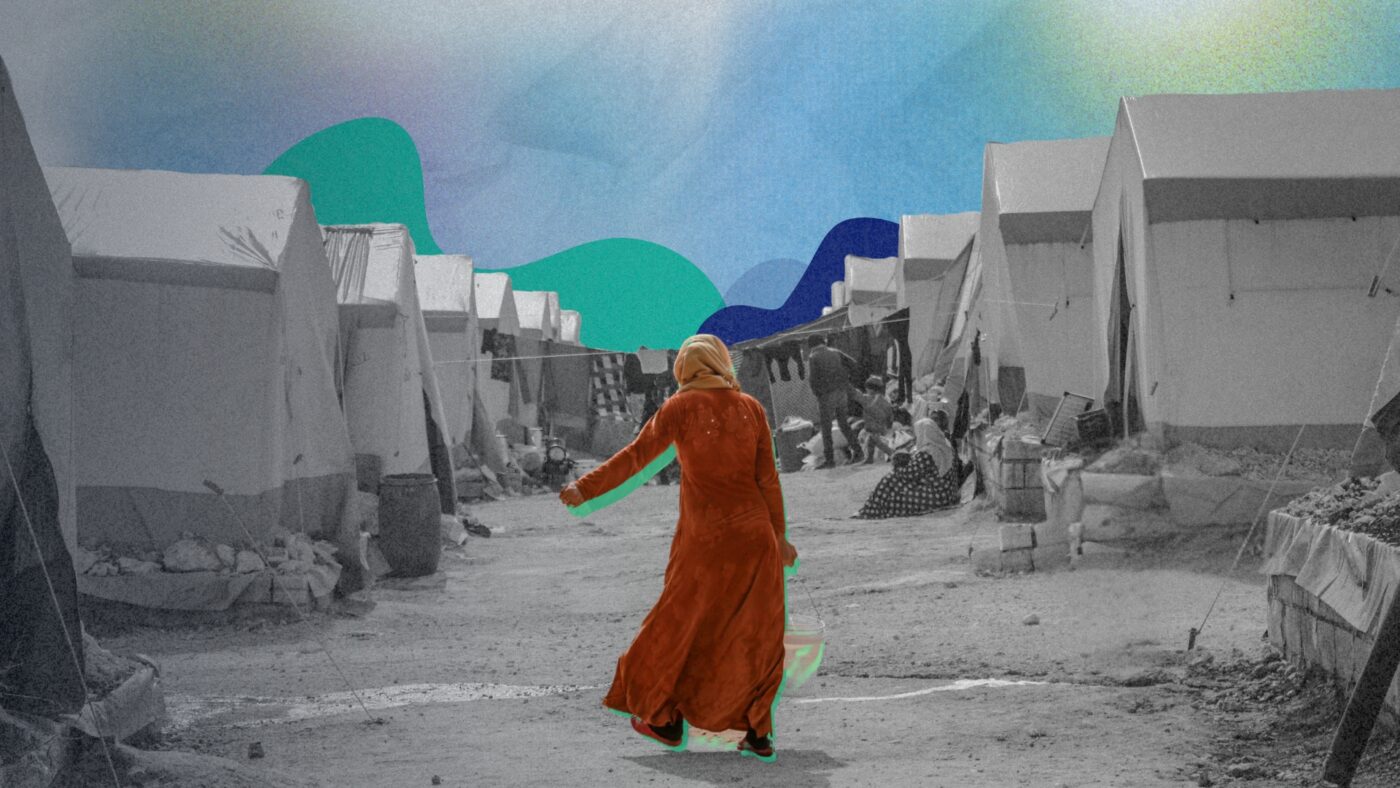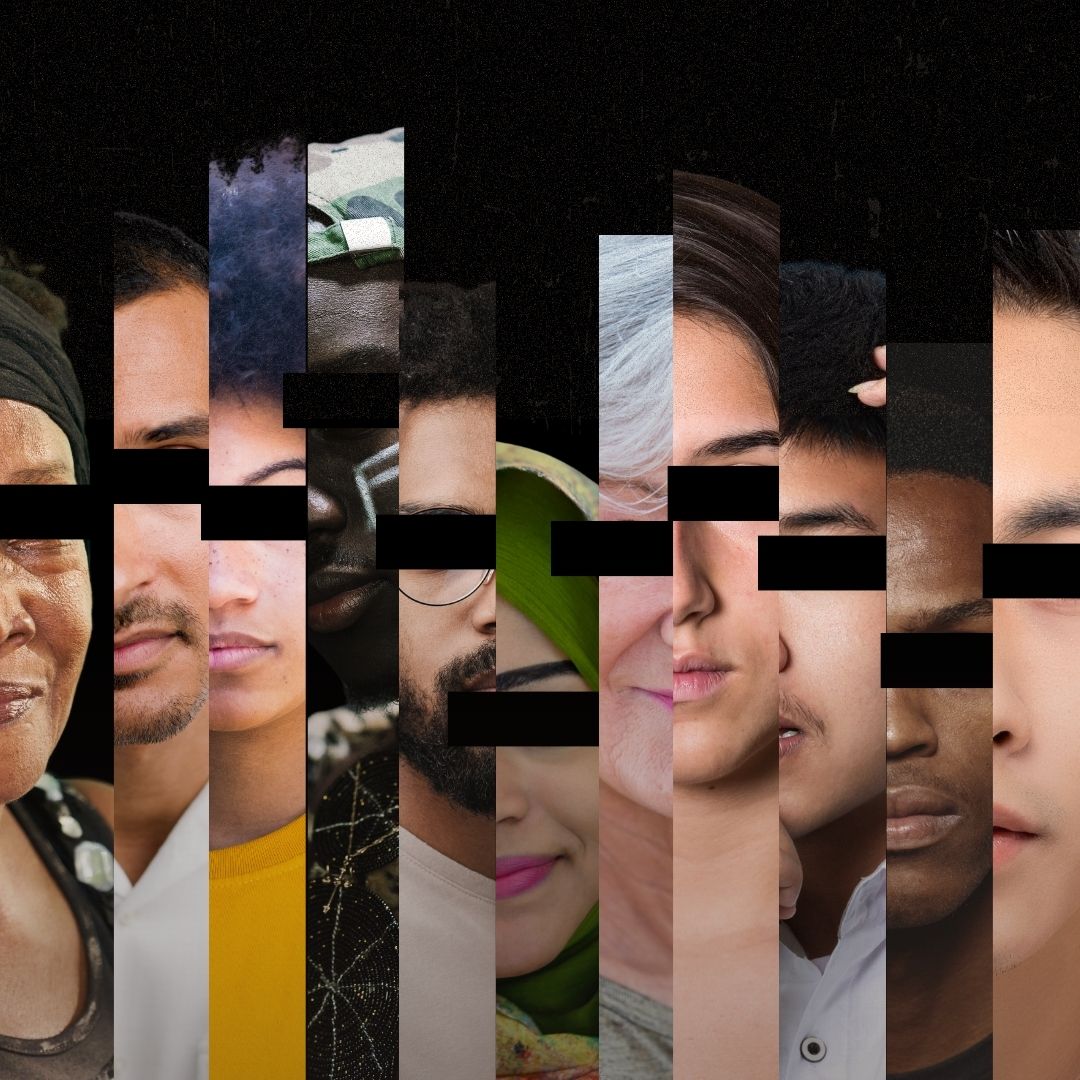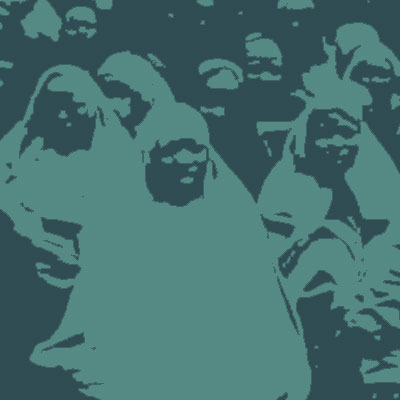Religious Persecution
The persecution of Christians has existed from the very beginning of the church and, sadly, continues into the 21st century. Various forces are at play in shaping religious freedom in our nations, and their implications are far-reaching.
Social hostilities are on the rise as identity politics continues to fuel tensions and deepen divisions, especially where religious identities become tools for power and control. Geopolitical conflicts and territorial disputes put pressure on precious resources, further exacerbating religious persecution and often leading to displacement and targeted violence, especially against religious minorities. The dynamic landscape of religious persecution intertwines with the ongoing struggles for gender equality. Women and marginalized communities often bear the brunt of discriminatory practices rooted in religious traditions, even as they are targeted for their faith.
Across the globe, governments increasingly adopt laws and policies that restrict religious practices, limit the engagement of religious institutions, and curtail freedom of religion. Additionally, the balancing protection of religious freedom and enforcing censorship is fueling debates about the limits of expression and the protection of vulnerable communities. Furthermore, as data security concerns escalate, the gathering and surveillance of religious information can pose serious threats to individual privacy and religious freedom. The rising legal restrictions and the erosion of various human rights protections cast a shadow on the future of religious freedom.
This article endeavors to explore the complex relationship between these pressing issues and religious persecution, offering insights into the potential trajectory of religious freedom as we navigate the uncharted territory of the next three decades.

The State of Religious Persecution
Today, more than 360 million Christians worldwide suffer high levels of persecution and discrimination for their faith.1 The rising tide of violence targeting Christians shows no sign of abatement. Incidents of attacks on churches, burning, demolition, or looting of churches and homes, physical assault, arrest, imprisonment, kidnapping, rape, torture, and killings are reported worldwide. It is estimated that 312 million Christians in 76 countries suffer extreme levels of violence, a figure that has doubled over the past 30 years.2 This trajectory indicates an upward trend in violence against Christians in the coming decades. Some of the main drivers of religious persecution are outlined below.
Rising government restrictions / legal restrictions
Violence and social hostilities are the most visible forms of control in subjugating religious minorities. Less visible but equally effective are rising legal restrictions and controls imposed by governments.3 Such restrictions include national laws, government policies, and practices. Processes of registration, requiring religious groups or places of worship to be ‘registered’ with a government deems those registered to be ‘legitimate’ and others to be illegal, exposing them to social hostility. Laws and processes which grant ‘recognition’ to religious groups, granting legal personality4 or privileges5 restrict the full enjoyment of the right to religious freedom of those who are denied recognition. The practice of utilizing these legal methods to discriminate against minority religions is a growing concern.
The rising tide of violence targeting Christians shows no sign of abatement.
More prominent laws regulating religion subscribe to severe punishments including death, imprisonment, or confiscation of property. Apostasy laws, which exist in several countries in the Middle East and North Africa, penalize the act of renouncing one’s religion and are in some countries punishable by death. Blasphemy laws ban speech or actions considered to be contemptuous of God or of people or objects considered sacred. In countries such as Afghanistan, Brunei, Iran, Mauritania, Nigeria, Pakistan, and Saudi Arabia violations of blasphemy laws may be punishable by death.6 Anti-conversion laws prohibit changing one’s religion or facilitating changing of religion. It is prevalent in South Asia, particularly in India, and carries penalties of imprisonment and fines.
It must be noted that laws and government restrictions invariably attract social hostility and violence targeting minority religious groups and individuals, creating a vicious cycle of discrimination and violence.
Geopolitical conflicts
Geopolitical conflicts have impacted the world for centuries and continue to present increasingly complex challenges to religious freedom. Disputes over territorial claims, trade, natural resources, ethnic identities, and cultural or historical grievances impact the freedom of religion or belief of communities, even when the issue of contention has no overt religious dimension. The emotive power of ‘religion’ is harnessed to justify any claim or conflict, secure mass support, and even inflict violence on others. Religious minorities are targeted or used as pawns.
Geopolitical conflict where a state or group seeks to exert power over others or spread an ideology, invoking religion as a source of national identity or pride, invariably results in oppression, discrimination, and violence against other religious communities. Recent developments in global geopolitics and the spillage of religious militancy across borders pose a growing threat to religious minorities and the right to freedom of religion or belief.
Conversely, religion and the freedom of religion or belief can contribute to the resolution of geopolitical conflict by fostering dialogue, tolerance, cooperation, and respect among different faiths and cultures across the globe. It is an opportunity to engage and a responsibility that the church must pursue.
Identity politics
Ethnic and sectarian violence and conflict are experiencing an alarming surge globally with little indication of abatement. Historical conflicts coupled with other drivers such as poverty, corruption, institutionalized injustice, etc. have led to frequent divisions between groups along religious lines. The linkage between religious identities and nationalism is only expected to rise even as groups strive to gain dominance over land and other natural resources.
The causal link between religious nationalism or Islamic militancy and violence against religious minorities is increasingly visible in Africa, the Middle East, and Asia. The role played by governments as instigators, enablers, or perpetrators of violence in many countries violates the right to freedom of religion or belief and denies justice for victims.7
Hostility towards Christian ideas
Additionally, in today’s context, certain biblical truths are seen as hostile or intolerant, leading to instances of censorship. This broader societal battle to share Christian ideas may also manifest within households, where parents may encounter challenges in imparting Christian ethics, particularly regarding sexuality, when faced with opposing viewpoints promoted by a powerful ‘progressive’ state and strong media lobby.
Another significant challenge the church is confronted with is the very definition of human life. As scientific advancements enable greater control over the selection and alteration of physical traits during conception, the ethics surrounding genetic technologies will remain contentious. This will have a direct impact on the ethics and morality of abortion, surrogacy, genetic engineering, and the ending of life, fueling the physician-aided suicide or euthanasia debate. To navigate this complex landscape, the church must actively contribute to the establishment of strong moral guidelines, ensuring the responsible and conscientious application of these technologies.
The Impact of Religious Freedom Violations
Religious freedom violations driven by geopolitics, global trends, and advances in technology pose new challenges which impact evangelism and the church worldwide. Some of the most prominent of these challenges are outlined below.
Global migration and refugees
The issue of religious persecution and forced displacement of religious communities is a tragic and deeply concerning problem that persists in various parts of the world. Many religious communities, targeted for their religious beliefs or affiliations, have been compelled to leave their homes in search of safety and security. They often encounter numerous challenges and even face transnational repression in their host countries. Tensions between refugees and host countries, pressure on scarce natural resources, urban infrastructure, restricted access to justice, and economic disparities fuel debate and conflict. Concerted efforts are required by governments and civil society to build trust and decrease violence and extremism.
Fake tolerance / hate speech laws
Even as governments try to regulate conflicts between communities, there is increased pressure on individuals to conform to new standards of tolerance. Increasingly, censorship of biblical truths is a common phenomenon. Coupled with a broad definition of what constitutes hate or outrage, this trend will continue to result in chilling of speech and increased restrictions on the gospel.
‘Cancel culture’ has had a detrimental impact on numerous college campuses, which are traditionally regarded as the marketplace of ideas and spaces dedicated to rational and unbiased discourse. Speakers are now frequently interrupted or disinvited due to hostile reactions from students, and professors face the risk of demotion or even termination for expressing viewpoints deemed offensive by the student body. Bolstered by social media, ‘cancel culture’ has resulted in the loss of employment for various professionals across the globe. ‘Cancel culture’ has led to a new form of social ostracism for speaking truth and is impacting the ability of Christians to access public platforms and services.
Gendered persecution
The interplay of gender and religious identity also continues to victimize women. Religious women often face violence and discrimination which are described by experts as hidden, violent, and complex.8 When women are subjected to discrimination based on their gendered religious identity, it can result in profound psychological distress for both the individuals affected and the communities they belong to. This is due to the close association between women’s religious identity and their communities’ prevailing norms and values. Furthermore, religious rights and gender rights are often viewed as opposing each other, despite repeated findings that women tend to identify as religious more often than men.9
Digital surveillance
The increased presence of religious communities online has both positive and negative implications. On one hand, it enables them to engage in online worship, share religious texts and beliefs, and connect with a broader audience. However, it also exposes them to risks such as intimidation and targeting. As a result, cyberspace has become an increasingly perilous environment for religious minorities and those who may be seen as opposing government policies or social norms. The integration of artificial intelligence in social media platforms, such as algorithmic ad targeting and personalized content, has raised concerns about the potential influence on individuals’ opinions and autonomy. This influence extends to platforms like Google and Facebook, where there is a risk of shaping and modifying thoughts, potentially impacting our ability to make independent choices.

Opportunities and Challenges for the Great Commission
Increased challenges, restrictions, and violence necessitate rethinking traditional methods of sharing the gospel. It is imperative to create resources and communication tools that are useful, effective, and remain true to the gospel, as well as innovative methods of delivery that can evade or prevail over oppressive surveillance and attacks.10 Resources for creative evangelism should also be developed with cultural and gender sensitivity.
The level and type of restrictions and violence may differ from country to country. What works in one may not work in another. For example, a community that is highly vulnerable to physical attacks may benefit from digital resources and online gatherings for worship, while a community under sophisticated digital surveillance may benefit from non-digital, traditional methods of communication. In dangerous situations where there are severe restrictions or legal bars with excessive penalties for sharing the gospel, understanding these restrictions and the extent of the repercussions is important in determining the most suitable method of delivery. The following are some opportunities and challenges.
Pre-evangelism
Escalating hostilities and persecution of Christians globally creates a climate of fear and diminishes opportunities for pre-evangelism. Challenges posed by the rise of secularism and pluralism undermining the truth of the gospel, the increasing influence of social media in shaping worldviews and values, and the alternatives offered by cyberspace further erode space for building traditional relationships and communication. Creative and flexible methods of connecting with people and presenting the gospel as a relevant answer to present-day complexities are needed. These challenges require pre-evangelists to be well-informed, well-equipped, and well-prayed.11
Interfaith dialogue
Interfaith dialogue can play a critical role in promoting peace, tolerance, and understanding between diverse religious communities. Building trust is key to dispelling fear of the unfamiliar, diffusing tensions, and significantly reducing religious conflict. It can also be an opportunity for a Christian to witness as a peacemaker, to practice forgiveness, and loving your neighbor as yourself.
Faith communities’ involvement in civil/ democratic movements
Faith leaders can play a critical role in strengthening human rights by increasing the understanding of their communities of the international human rights framework, building resilience and empathy, and creating opportunities for reconciliation and healing in conflicts.
Youth engagement
Young people make up 33 percent of the world’s population and are the largest demographic globally.12 ‘Generation Z’ (those born between the mid-1990s and early 2010s), also known as ‘Digital Natives’, are the most diverse and multicultural generation in history, with high levels of digital literacy and social awareness. Engaging this demographic is vital in sustaining the mission of the global church and developing the next generation of leaders, who bring fresh perspectives and innovative solutions to new challenges faced by the church.
Data and Security
A major challenge in responding to religious freedom violations is lack of documentation. This challenge arises due to underreporting, lack of transparency, government censorship, fear of reprisals, and limited resources for data collection. Without comprehensive and reliable data, it becomes difficult to gauge the scale, nature, and impact of religious persecution accurately. Even among groups where data is collected and disseminated, there is disagreement on the definition of persecution and ways to share and distribute the data.

The Way Forward
There are several strategies to protect and promote religious freedom globally. Some important tools and strategies, both in terms of preventive and reactive strategies which can provide more comprehensive support to the persecuted church, are outlined below.
Education
Education is imperative in preventing and countering intolerance and discrimination based on religion or belief. Human rights education is the most effective strategy for promoting respect for diversity and human rights. Learning critical thinking skills can help challenge prejudice and hatred. The United Nations Office of the High Commissioner for Human Rights (OHCHR) recognizes the importance of education in combating intolerance against persons based on religion or belief.13 Resources such as the ‘Faith for Rights’ framework and toolkit, developed by the OHCHR, to facilitate peer-to-peer engagement, exploring the relationship between religion and human rights.14
Legal systems
International legal standards form the backbone of all national legal systems in protecting and promoting the right to freedom of religion or belief. Article 18 of the Universal Declaration of Human Rights and Article 18 of the International Covenant on Civil and Political Rights guarantee the right to religious freedom for all people. These and other key international statutes are an important resource in defending the freedom of religion or belief.
National laws which reflect the standards and protections enshrined in international statutes are imperative in protecting religious freedom, particularly for minority religious communities within a country. However, laws and statutes which guarantee basic human rights are ineffective in a context where democratic governance, the rule of law, and independence of the judiciary are absent.
Community mechanisms
Sensitive local communities play a critical role in combating violence and discrimination. This can be done by creating opportunities to document and respond to hostility through mediation, access to justice and reconciliation, relief, and rehabilitation. The ‘Fez Process’ developed by the United Nations provides some excellent suggestions for faith leaders and communities to take action to prevent sectarian violence15
Lifestyle evangelism
In communities where Christian worship, observance, practice, or teaching are deemed illegal or banned, lifestyle evangelism may be the only practical manifestation. Living according to biblical principles and reflecting the character and teachings of Christ in daily life can be a silent but powerful witness where the active proclamation of the Gospel is impossible.
Advocacy for religious freedom along with other human rights
Integration of freedom of religion or belief (FORB) into human rights is essential for the protection and promotion of the fundamental right to freedom of thought, conscience, and religion. As stated earlier, this right is enshrined in international human rights instruments such as the Universal Declaration of Human Rights and the International Covenant on Civil and Political Rights.
By integrating FORB into human rights frameworks, governments can be held accountable to ensure that individuals are free to practice their religion or belief without fear of discrimination or violence. The linkages between the right to FORB and other important human rights such as freedom of expression, freedom of assembly, and right to equality make FORB central to any meaningful human rights discourse.
In an increasingly globalized world, the efforts of various governments to make freedom of religion or belief central to their foreign policy offer several opportunities to strengthen nation-states’ commitment to FORB and hold errant governments to account. The growing movement to promote FORB globally can help to promote social harmony, tolerance, inclusiveness, and respect for diversity in countries where minority religions are targeted with discrimination and violence.
Technology
Life without technology and the conveniences it offers is unthinkable. Modern technology has transformed human communication, education, work, and entertainment. Advances in digital technology provide instant access to vast amounts of information and instant connectivity to people across the globe.
This technology enables the gathering, storing, and sharing of information, relaying of incidents and events in real-time on the world wide web, and connecting with people across time zones and geographical borders. These means can be harnessed to advocate for the rights of those targeted for their faith and to expose discrimination and violence. Documentation of human rights violations, however, comes at great risk to human rights defenders. While technology has been pressed into service to some extent to document violations, it continues offering even greater potential, opportunities, and risks.
Human rights education is the most effective strategy for promoting respect for diversity and human rights.
Conclusion
Looking back, every past century and decade has brought new challenges to nations, regions, and the world, impacting religious freedom and the mission of the church. The challenges of the 21st century are more complex and diverse than ever. The church is called to serve in this ever-evolving landscape of hostility. While acknowledging that persecution is inevitable, as Christ Jesus warned, it is the responsibility of the global church ‘to stand against injustice and to remain faithful to the gospel, whatever the cost.’16 The resilience and persistence of the faithful who have, for centuries and to this very day, endured violence for following Christ stands as testimony to the unstoppable mission of the gospel of Jesus Christ. As Jesus himself said, ‘[. . . ] I will build my church, and the gates of hell shall not prevail against it’ (Matthew 16:18). This is our hope and our future.
Resources
- Penner,Glenn. In the Shadow of the Cross—A biblical theology of persecution and discipleship.Bartlesville, OK: The Voice of the Martyrs Books, 2021.
- Boyd-MacMillan,Ronald. Faith that Endures–The Essential Guide to the Persecuted Church. Ada, MI: Revell,2006
- Ed. Taylor, William D.,Van Der Meer,Antonia, Reimer,Reg. Sorrow & Blood–Christian Mission in Contexts of Suffering, Persecution, and Martyrdom. Pasadena, CA:William Carey Library,2012
- “In Response to Persecution: Findings of the Under Caesar’s Sword Project on Global Christian Communities.” Under Caesar’s Sword Project (2017).
- Anderson,Ryan T. Truth Overruled—The Future of Marriage and Religious Freedom. Washington, D.C.: Regnery Publishing, 2015 Coleman,Paul.Censored—How European ‘Hate Speech’ Laws are Threatening Freedom of Speech. Kairos Publications; 2nd ed., 2016
Endnotes
- Open Doors. “World Watch List 2023.“ Accessed August 23, 2023. https://www.opendoors.org/en-US/persecution/countries/.
- Ibid.
- Samirah Mujumdar and Virginia Villa. “Globally, Social Hostilities Related to Religion Decline in 2019, While Government Restrictions Remain at Highest Levels.” Last modified September 30, 2021. https://www.pewresearch.org/religion/2021/09/30/globally-social-hostilities-related-to-religion-decline-in-2019-while-government-restrictions-remain-at-highest-levels/.
- Legal Persona entitles non-human entities to be treated as a person to enter into contracts, sue or be sued, purchase immovable property etc.
- Benefits provided by the state which may include providing security in situations of conflict, compensations and funds to reconstruct places of worship destroyed in conflict, access to education and scholarships, tax exemptions etc.
- Virginia Villa. “Four-in-ten countries and territories worldwide had blasphemy laws in 2019.” Last modified January 25, 2022. https://www.pewresearch.org/short-reads/2022/01/25/four-in-ten-countries-and-territories-worldwide-had-blasphemy-laws-in-2019-2/.
- Article 13 of the Lausanne Covenant says, ‘It is the God-appointed duty of every government to secure conditions of peace, justice and liberty in which the Church may obey God, serve the Lord Jesus Christ, and preach the gospel without interference.’ https://lausanne.org/content/covenant/lausanne-covenant#cov.
- Open Doors UK. “Why are Christian women and girls particularly vulnerable to persecution?” Last modified February 22, 2023. https://www.opendoorsuk.org/news/latest-news/christian-women-vulnerable/.
- T he Conversation. “Why the future of the world’s largest religion is female – and African.” Last modified March 23, 2022. https://theconversation.com/why-the-future-of-the-worlds-largest-religion-is-female-and-african-178358.
- Article 10 of the Lausanne Covenant calls for ‘the development of strategies for world evangelization calls for imaginative pioneering methods.’ https://lausanne.org/content/covenant/lausanne-covenant#cov.
- Lausanne Occasional Paper No. 42. “Prayer in Evangelism.” September 29 to October 5, 2004. https://lausanne.org/content/lop/prayer-evangelism-lop-42.
- Carmen Ang. “Visualizing the World’s Population by Age Group.” Last modified June 16, 2021. https://www.visualcapitalist.com/the-worlds-population-2020-by-age/.
- ‘It is vital to address intolerance, negative stereotyping and stigmatization of, and discrimination, incitement to violence and violence against, persons based on religion or belief with a human rights-based approach. Nelson Mandela famously said that ‘No one is born hating another person because of the color of his skin, or his background, or his religion’. In addition, nobody is born knowing how to manage religious diversity, which can have a huge positive potential for human rights but also be the source of serious tensions. These truths underline the importance of inclusive peer-to-peer learning on faith and human rights.’ United Nations Human Rights. “Combating intolerance against persons based on religion or belief.” Accessed August 23, 2023. https://www.ohchr.org/en/minorities/combating-intolerance-against-persons-based-religion-or-belief.
- United Nations Human Rights. “OHCHR and the “Faith for Rights” framework.” Accessed August 23, 2023. https://www.ohchr.org/en/faith-for-rights.
- United Nations Office on Genocide Prevention and the Responsibility to Protect. “Plan of Action for Religious Leaders and Actors To Prevent Incitement to Violence That Could Lead To Atrocity Crimes.” Accessed 23, 2023. https://www.un.org/en/genocideprevention/documents/Plan%20of%20Action%20Advanced%20Copy.pdf.
- Article 13 of the Lausanne Covenant. https://lausanne.org/content/covenant/lausanne-covenant#cov.
